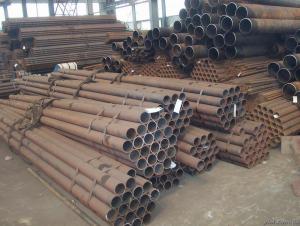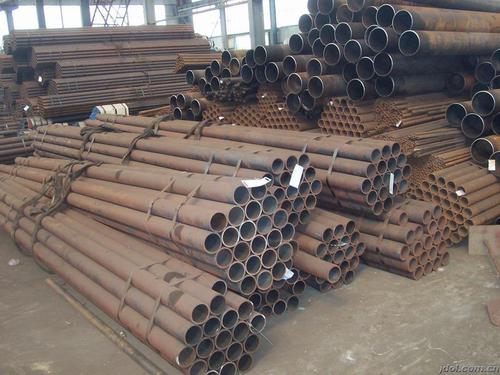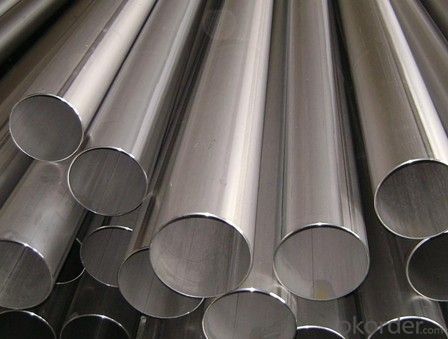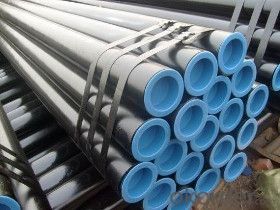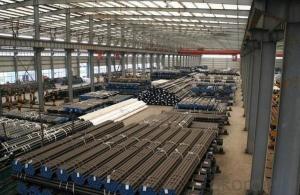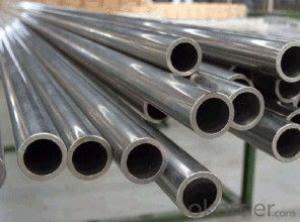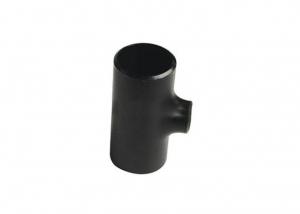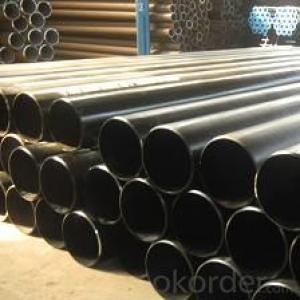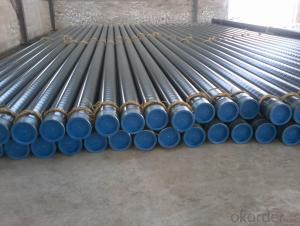Seamless Carbon Steel Pipe
- Loading Port:
- China Main Port
- Payment Terms:
- TT or LC
- Min Order Qty:
- 35 m.t.
- Supply Capability:
- -
OKorder Service Pledge
OKorder Financial Service
You Might Also Like
1、Structure of Seamless Pipe :
Seamless pipe is formed by drawing a solid billet over a piercing rod to create the hollow shell.As the manufacturing process does not include any welding, seamless pipes are perceived to be stronger and more reliable.
2、Main Features of the Seamless Pipe:
• High manufacturing accuracy
• High strength
• Small inertia resistance
• Strong heat dissipation ability
• Reasonable price
3、Seamless Pipe Specification:
Standard | GB, DIN, ASTM ASTM A106-2006, ASTM A53-2007 |
Grade | 10#-45#, 16Mn 10#, 20#, 45#, 16Mn |
Thickness | 8 - 33 mm |
Section Shape | Round |
Outer Diameter | 133 - 219 mm |
Place of Origin | Shandong, China (Mainland) |
Secondary Or Not | Non-secondary |
Application | Hydraulic Pipe |
Technique | Cold Drawn |
Certification | API |
Surface Treatment | factory state or painted black |
Special Pipe | API Pipe |
Alloy Or Not | Non-alloy |
Length | 5-12M |
Outer Diameter | 21.3-610mm |
Grade | 20#, 45#, Q345, API J55, API K55, API L80, API N80, API P110, A53B |
Standard | ASME, ASTM |
4、Packaging & Delivery
Packaging Details: | seaworthy package,bundles wrapped with strong steel strip |
Delivery Detail: | 15-30days after received 30%TT |
5、FAQ of Seamless Pipe :
①How is the quality of your products?
Our products are manufactured strictly according to national and internaional standard, and we take a test on every pipe before delivered out. Guaranteed: If products’ quality don’t accord to discription as we give or the promise before you place order, we promise 100% refund.
②How about price?
Yes, we are factory and be able to give you lowest price below market one, and we quote as lowest as possible for any customer.Please trust the quotation we would give you, it is professional one.
③Why should you chose us?
Chose happens because of quality, then price, We can give you both.Additionally, we can also offer professional products inquiry, products knowledge train(for agents), smooth goods delivery, exellent customer solution proposals.Our service formula: good quality+good price+good service=customer’s trust
6、Seamless PipeImages:
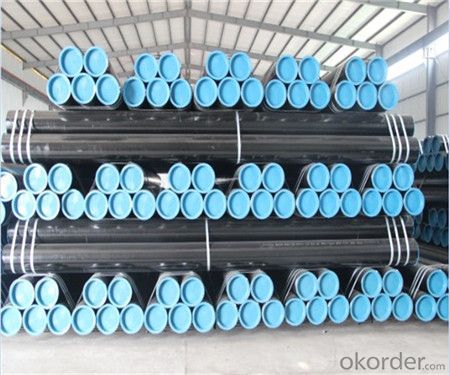
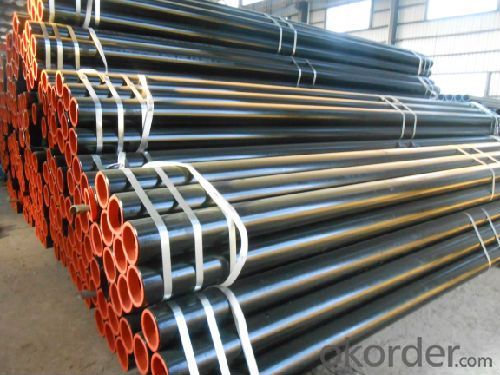
- Q: How do steel pipes handle thermal expansion and contraction?
- Steel pipes handle thermal expansion and contraction by allowing for slight movement and flexibility. When heated, the steel pipe expands, and when cooled, it contracts. To accommodate these changes, expansion joints or loops are often incorporated into the pipe system. These joints or loops allow the pipe to expand and contract without causing stress or damage. Additionally, proper insulation and support are essential to minimize the effects of thermal expansion and contraction on steel pipes.
- Q: Are steel pipes suitable for underground drainage systems?
- Yes, steel pipes are suitable for underground drainage systems. They are commonly used in such systems due to their durability, strength, and resistance to corrosion. Steel pipes can effectively handle the pressure and flow of water and other fluids, making them a reliable choice for underground drainage.
- Q: Difference between cold rolled steel pipe and common steel pipe
- 3, the caliber of cold-rolled steel tube is smaller than that of hot rolled steel tube4, from the price point of view, cold-rolled steel pipe is 1000-2000 tons more expensive than hot-rolled steel pipe
- Q: What does "SC50" steel pipe mean in civil engineering?
- The corrosion resistance of Ni is very strong in acidic environment. In the environment containing sulfuric acid or hydrochloric acid, the higher the content of Ni in the welded pipe is, the stronger corrosion resistance is. In general circumstances, the addition of Cr in a T-junction steel pipe prevents erosion. The marginal condition of the steel strip is another important cause of the wrong edges. The influence of mass flow rate, heat flux density and structural parameters (ratio of spiral curvature diameter and diameter of T-shape welded tube Dc/D) on heat transfer coefficient of saturated bubble boiling in vertical helical tubes.
- Q: Can steel pipes be used for underground heat exchange systems?
- Underground heat exchange systems can utilize steel pipes, which are known for their durability and strength against the pressure and environmental conditions underground. Steel is resistant to corrosion and can withstand high temperatures, allowing for efficient heat transport. Moreover, steel pipes are readily accessible and cost-effective compared to other materials, which contributes to their widespread use in underground heat exchange systems. Nevertheless, it is crucial to appropriately insulate and safeguard the steel pipes to prevent heat loss and potential harm caused by external elements like moisture or soil displacement.
- Q: What is an electric welded pipe (EFW)? Seek help!
- It is through one or several consumable between the electrode and the workpiece on the metal heating the metal between a process with the arc to metal and filler material fully melted, no pressure, filler metal parts work from all electrodes
- Q: Can steel pipes be used for conveying slurries or abrasive materials?
- Yes, steel pipes can be used for conveying slurries or abrasive materials. Steel pipes are known for their strength and durability, making them suitable for handling heavy-duty applications. They are resistant to wear, corrosion, and impact, which makes them ideal for conveying abrasive materials or slurries that contain solids or particles. Additionally, steel pipes can withstand high pressure and maintain their structural integrity, ensuring the safe and efficient transportation of slurries or abrasive materials.
- Q: How to make the internal tooth of the steel pipe?
- At present, in our country, 300MW or 600MW or more large capacity sub critical and supercritical thermal power boilers are designed or imported abroad. Membrane internal wall tubes are widely used in membrane water wall.
- Q: What are the different grades of steel used in pipe manufacturing?
- There are various grades of steel used in pipe manufacturing, including carbon steel, alloy steel, stainless steel, and duplex steel.
- Q: How are steel pipes coated for underground applications?
- Steel pipes are typically coated for underground applications using a variety of methods, including but not limited to hot-dip galvanizing, epoxy coating, and polyethylene wrapping. These protective coatings help prevent corrosion, increase the lifespan of the pipes, and ensure their reliability in underground environments.
Send your message to us
Seamless Carbon Steel Pipe
- Loading Port:
- China Main Port
- Payment Terms:
- TT or LC
- Min Order Qty:
- 35 m.t.
- Supply Capability:
- -
OKorder Service Pledge
OKorder Financial Service
Similar products
Hot products
Hot Searches
Related keywords
